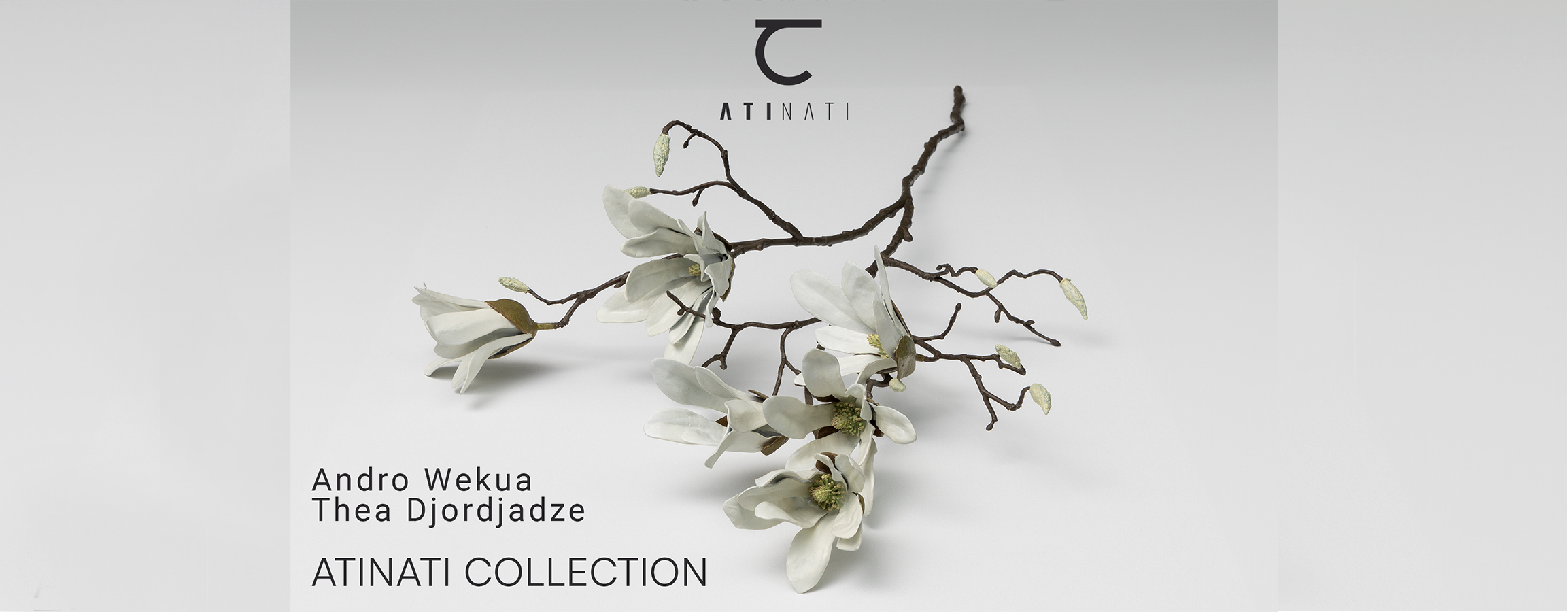
Feel free to add tags, names, dates or anything you are looking for

ATINATI is a non-profit charitable foundation dedicated to popularizing Georgian art
and culture. The foundation operates as the media platform and ATINATI’S Cultural
Center.
One of ATINATI's main directions is the expanding collection of works, which is
currently in its fifth year and already includes over 2000 artwors. ATINATI Private
Collection includes works created in various media, which provides a vivid picture of
Georgian art's continuous growth from the modernism period to the present.
The exhibition - ATINATI COLLECTION presents works in various mediums by two
contemporary, distinguished Georgian artists, Andro Wekua and Thea Djorjadze, from
ATINATI Private Collection.
Thea Djorjadze was born in 1971 in Tbilisi, Georgia. She studied at the Tbilisi State
Academy of Arts, and later at the Kunstakademie Düsseldorf. She currently lives and
works in Germany. Her work is characterized by diverse forms of sculpture and
installation. Djorjadze often works with a variety of materials - textiles, wood, glass,
plaster, metal. By combining materials, she creates gentle, but at the same time strong
forms. Her works are often minimalist and abstract, but carry a strong emotional and
poetic charge. Motifs of impermanence, temporality and fragility are often found. Her
art explores space, time, memory and cultural identity. Thea Djorjadze's art is often
considered as a space of border and intercultural dialogue. Her works, on the one hand,
are connected to Western contemporary art, and on the other hand, bear traces of post-
Soviet experience and personal memories.
Andro Wekua was born in 1977 in Sokhumi,Georgia. He is one of the most prominent
contemporary Georgian artists, whose work is multifaceted and includes painting,
sculpture, video art, installation and graphics. He is considered one of the most famous
Georgian artists on the international art scene. He spent his childhood and youth in
Abkhazia, but after the conflict and war of the 1990s, he was forced to leave the city
with his family. This traumatic experience is often reflected in his work. He studied at
the Tbilisi Academy of Arts, and later in Basel, Switzerland. His characters are often
transparent, dreamlike figures — half-realistic, half-imaginary. He works in many
media — creating life-size sculptures, painted abstractions, cinematic videos. His art
equally encompasses dreamlike and documentary dimensions. Andro Wekua's art
stands at the intersection of personal trauma and collective memory. His works are, on
the one hand, very intimate, and on the other hand, they deal with universal themes:
war, displacement, time. His style is often described as "melancholic surrealism" - spaces
and figures where reality and dream merge.